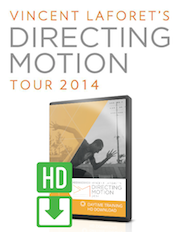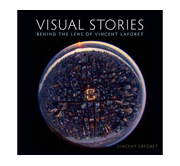Everything Is a Remix: Parts 1 & 2
While many of you out there know me as a gear-head (yes – I do like my toys ;), I have always stressed the importance of story. I have said that films must have original narratives/characters/and themes with which an audience can engage. There are tons of cool effects and graphics out there which are great eye candy – but ultimately those that do not have a story to tell will be lost amongst the deluge of content out there. Of course – an original story is not the easiest thing to come up with, much less tell. Nowhere is this more apparent than in Hollywood, with all of its remakes/sequels and seemingly unoriginal content. The video below addresses this trend in filmmaking (Part Two):
[vimeo video_id=”19447662″ width=”700″ height=”525″ title=”Yes” byline=”Yes” portrait=”Yes” autoplay=”No” loop=”No” color=”00adef”]
(Watch the whole thing! A great little analysis of Kill Bill at the end)
At first glance, the video seems to discredit the notion of an original story at all. But a second thought should reveal this to be something that we have always known. We’ve been remaking the same stories since the advent of storytelling. If you really break it down you can classify all stories as a basic struggle between man v. man, man v. nature, or man v. himself. These conflicts make up the bulk of all stories – the elements around them have just grown in complexity as storytelling techniques and conventions have grown upon and informed one another. There isn’t a huge difference between Shakespeare’s Romeo and Juliet and the Greek myth of Pyramus and Thisbee save a couple thousand years of linguisitic and theatrical developments. But they share a common conflict of the human condition that has engaged audiences for millennia.
The video above says as much – and what I find so interesting about it – is that instead of pointing out a lack of originality in modern storytelling – it strives to redefine that originality. It simply proposes that “everything is a remix” of the elements that have come before it. Therefore, originality is not the genesis of some new unknown idea – but the compounding of two ideas that have come before it to create a new meaning. The same is true for all arts and letters – as they make up the mediums for all communication. They have evolved over time – incorporating new techniques and developments. Language is the most pertinent example – you must understand the meaning of all the different words you are using to put them in sequence and express an idea.
And so let me rephrase my thoughts on originality of story. I still believe story is important. A good story engages an audience and captivates them. Variations of the same stories have done it since the inception of drama. If we take into account what the video above explains about the re-use of stories over time, then we should be lucky that we have such a large repository of story elements to draw from. As filmmakers we should focus on understanding all of these elements and how they might work together to set forth new ideas. For this is how we will attain originality – not through telling a story that no one has ever told – but by expressing an idea, opinion, or point of view that has never been considered.
You can check out Part One below, and Parts Two and Three will arrive in the coming months. A sincere congratulations to filmmaker Kirby Ferguson for putting together such a well constructed and informative piece.
[vimeo video_id=”14912890″ width=”700″ height=”525″ title=”Yes” byline=”Yes” portrait=”Yes” autoplay=”No” loop=”No” color=”00adef”]













If everything is a remix, then at the beginning there has to be an original idea.
I believe inspiration is from two sources:
1. A collection of many little details ‘samples’ we accumulate over our life and then we combine ‘remix’ them to form an ‘idea’. This is from out minds and is a mathematical equation.
2. A divine inspiration, an idea that is truly holistic and original. For example an idea that was previously possible but only came up today. You see the idea and you recognise the simplicity and possibility of the idea and you are puzzled as to how no one came up with it before. This is from the Divine and just as we all recognise His existence in the depths of desperation we invoke God, our existence recognises true inspiration and beauty. This is from the heart and is not something we can calculate, have control over or understand with our minds.Its not acquired its given. We cant claim it as ours, we must recognise it to be from God and be thankful for it.
The first one is very common, the second requires belief and is rare in todays world.
This applies to general inspiration and its not limited to the film industry.
Great find! Thanks for sharing.
While I suspect focusing on remixing to create a new perspective can save artists time, I wonder whether the saved time spent wracking your brain to come up with a truly original story will be replaced by the thought that you are simply plagiarizing.
Yet for some reason, I cannot remix Mickey Mouse, an eighty year old cartoon character…
Love it!
If you haven’t already, you should see one of Lawrence Lessig’s presentations on this from a bit different view at http://blip.tv/file/1937322
It definitely makes you wonder how “creative” anyone really is. How much does anyone ever create? If it’s all just re-use, is it really creating?
One movie that is a must watch with regards to this entire discussion is Flash of Genius – you know, the one where that guy invents the intermittent windshield wiper, then auto makers steal his idea. There are some pretty good insights in that movie into what actually makes an idea “your idea”.
In one of the scenes, the main character takes the first few sentences from Charles Dickens book A Tale Of Two Cities. Then follows with this:
“Okay, so then you agree that there’s not,probably a single
new word in this book.”
“All Charles Dickens did was arrange them into a new pattern, isn’t that right?”
“But Dickens did create something new, didn’t he? By using words. The only tools that were available to him. Just as almost all inventors in history have had to use the tools that were available to them.”
Basically, as inventors (or creators, however you want to say it), we do a lot of re-using, but it’s our rearranging that makes it unique. I’m interested to see the rest of the series.
Vincent, are you planning to post here as new content comes out?
Godard said it best. “It’s not where you take things from but where you take them to.”
SUCH a great post. Thank you very much for sharing.